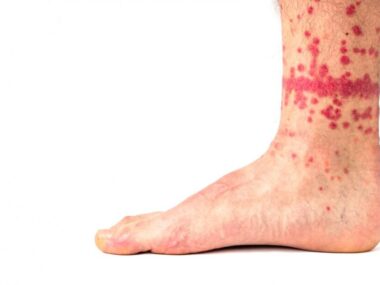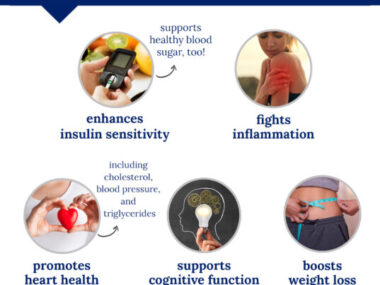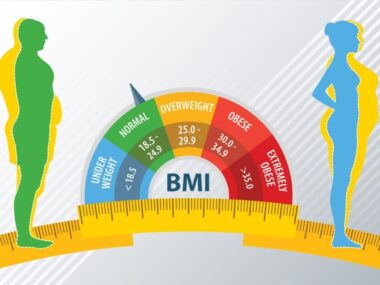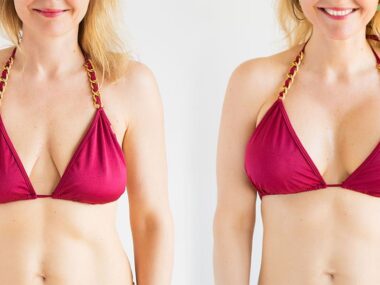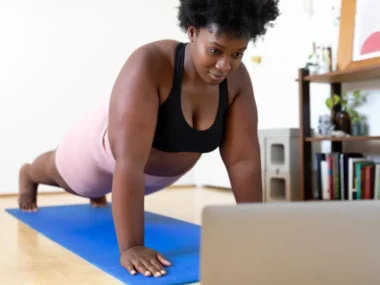When the valves in the veins of our legs weaken or are broken, varicose veins develop. This causes blood to pool, which causes the veins to expand and twist. Their growth is influenced by a variety of factors, including heredity, aging, hormonal changes, and extended sitting or standing. Inconvenience and pain can be brought on by varicose veins, but moderate exercise, keeping a healthy weight, and elevating your legs can help control symptoms and lower the likelihood that they will develop.
The best course of action if you have varicose veins is to see a doctor for a clear diagnosis and treatment choices.
Treatment for Varicose Veins
20 percent of adults are predicted to experience varicose veins at some point in their lives. Pain, itching, and discomfort are commonly experienced as a result of the twisted, swollen veins. There are now medical methods available to treat varicose veins, but if you want to save money, try these home remedies for varicose veins first.
Physical Activity
A wonderful starting point for at-home remedies for varicose veins is physical activity. Your blood circulates better when you move more. The goal is to help the blood’s return to the heart by assisting it as it collects in the damaged veins.
Varicose veins have harmful characteristics that can be reversed with low-impact exercise that increases blood flow. Stretching, swimming, walking, cycling, yoga, and other forms of exercises that circulate the blood and work the calf muscles without putting oneself in danger of harming oneself are all advantageous. High blood pressure, one of the risk factors for the development of varicose veins, can also be lowered with moderate activity.
Some Foods that Can Help Improve Vein Health
Foods High In Fiber
Dietary fiber supports normal bowel movements. If you frequently get constipation, eating fiber is particularly crucial. The physical strain required to pass stool might intensify the vein valve damage by generating a significant internal abdominal pressure.
You can incorporate foods high in dietary fiber in your diet such as
- avocados
- tomatoes
- broccoli
- carrots
- artichokes
- cauliflower
- onions
- sweet potatoes
- whole-grain foods
- wheat
- oats
- nuts
- flaxseed
- peas
- Beans
Flavonoid-rich Foods
Cardiovascular issues may be treated with flavonoids. They can ease blood vessel tension, lower arterial blood pressure, and enhance blood circulation.
Among the foods high in bioflavonoids are:
- spinach
- broccoli
- cocoa
- grapes
- citrus fruits
- blueberries
- Strawberries
- cherries
- apples
- Bell peppers
- Garlic
- Onions
Potassium-rich Foods
Lack of potassium can lead to water retention. As a result, your blood volume rises and the vein valves are put under more strain.
Include these foods high in potassium in your diet:
- yogurt
- almonds
- pistachios
- salmon
- tuna
- chicken
- white beans
- Lentils
- dates
- oranges
- winter squash
- potatoes
- leafy vegetables
- beet greens
Herbal Remedies
Certain herbal medicines can aid in reducing the symptoms of venous problems. These herbal treatments can be applied topically or taken as oral nutritional supplements. According to one study, the symptoms of chronic venous insufficiency, such as edema, cramps, or restless legs, may be alleviated by rutosides, Centella asiatica, and grape seed extract.
Grape Seed Extract
Since ancient times, people have employed grapes, grape leaves, and grape sap as alternative medicines. According to research, grape seed extract may be used to alleviate the signs and symptoms of chronic venous insufficiency. It also lessens edema. More study is required because the studies do not reach a firm conclusion.
Flavonoids, vitamin E, and other substances can be found in grape seeds. It is offered as a dietary supplement in tablet, pill, and liquid extract forms. Blood thinners and grape seed extract can interact, raising the chance of bleeding. If you are taking these medications, don’t take them.
Rutosides
Also known as rutin, this bioflavonoid can be found in a variety of plants, such as:
- citrus fruits
- buckwheat
- apples
- St. John’s wort
- Gingko biloba
Rutin is regarded as an anti-inflammatory, antioxidant, and anti-diabetic vitamin. It also improves the vascular system. It can fortify fragile capillaries and blood vessels, which are frequently a prelude to varicose veins. Spider and varicose veins, as well as edema in the calves and ankles, have all been treated with rutin. Rutin is commonly sold as a dietary supplement in the form of pills or capsules.
Centella asiatica
This perennial plant, sometimes known as gotu kola, is a native of Asia. Centella asiatica is helpful at strengthening weak veins, according to preclinical study. By doing so, venous insufficiency is treated. Typically, the plant is consumed as pills, capsules, or liquid extracts. Additionally, it can be used topically as a cream or ointment. Drugs or other plants may interact with this herb. On its safety, more research is required.
Apple Cider Vinegar
Varicose veins can be effectively treated with apple cider vinegar. It is a natural “body-cleansing” component that also enhances circulation and blood flow. The heaviness and edema of varicose veins will considerably lessen as the blood begins to flow normally.
According to a 2016 study that was published in Evidence-Based Complementary and Alternative Medicine, the straightforward external application of apple vinegar to individuals with varicose veins improved the results of conservative treatment.
In this study, patients with varicose veins were instructed to apply apple cider vinegar to the afflicted area and cover it with a cloth for around 30 minutes, twice daily for a month, in addition to receiving medical treatment. Statistical analysis of the test results revealed that, in comparison to patients who weren’t instructed to apply the vinegar, those who followed this therapy experienced less discomfort, weariness, edema, itching, discoloration, and cramping.
- Apply apple cider vinegar (undiluted) on the skin over the varicose veins. Massage the area gently. Do this every day in the morning and before going to bed. Follow this remedy for a few months to reduce the size of varicose veins.
- Alternatively, you can add 2 teaspoons of apple cider vinegar to 1 glass of water and stir well. Drink the mixture twice a day for at least one month to reduce the varicose veins.
Compression Stockings
If you have varicose veins, it can be a good idea to get compression stockings.
The leg muscles and veins will be able to flow blood more effectively if compression stockings are used. This may consequently lessen varicose veins symptoms. According to a 2018 study in the European Journal of Vascular and Endovascular Surgery, graduated elastic compression stockings appear to be more helpful than placebo stockings at reducing symptoms in people with varicose veins, especially pain or aching. For one week, the patients wore knee-high compression stockings with a pressure range of 18 to 21 mmHg.
A 2004 study published in Dermatologic Surgery found that calf-length compression stockings with a pressure range between 11 and 21 mmHg are able to reduce or totally prevent swelling in the legs due to long periods of sitting or standing.
The level of compression required varies for different patients. However, most types of compression stockings can easily be found at any drugstore.
When to see a doctor
In most cases, self-care measures are sufficient to manage this condition. However, it is recommended that you seek medical attention if:
- The skin over the affected veins becomes flaky, prone to bleeding, discolored, or ulcerated.
- The varicose veins are warm, red, and tender.
- The varicose vein gets injured.
- There is excessive bleeding.
- The bleeding doesn’t stop.
- Symptoms get worse.
- Self-care measures do not work.
Medical and surgical options for the treatment of varicose veins can be quite expensive. In a 2007 study published in the Annals of the Royal College of Surgeons of England, researchers pointed out that patients should consider the cost and expenses of conventional surgery before opting for it
Final Thoughts
Varicose veins and chronic venous insufficiency symptoms can be reduced with home remedies and a healthy lifestyle. The majority of complementary therapies and home remedies for varicose veins are still being studied, nevertheless. There are few official sources that support the effectiveness of these treatments.
Medical procedures may reduce the appearance of varicose veins if you really don’t like how they look. Consult your doctor if your varicose veins are becoming a health problem rather than merely a cosmetic issue.
That is a complete list of our recommended home remedies for varicose veins, nevertheless, always do your own research before you try out any home remedies.

